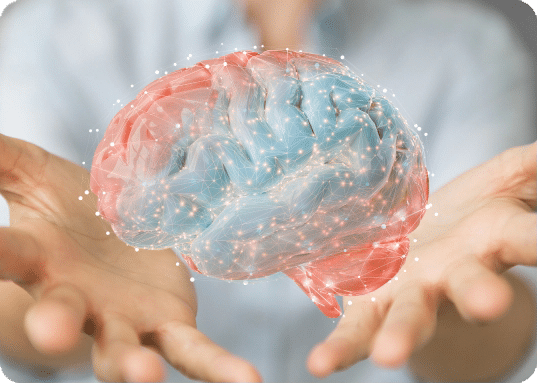What Is A Migraine?
Migraines are recurring headaches that typically occur with moderate to severe throbbing or pulsing pain on one side of the head. They can last anywhere from a few hours to a few days in a row. Depending on the person, migraines can be a once in a while occurrence or happen multiple times weekly. Migraines are frequently accompanied by an extreme sensitivity to light and sound, as well as nausea and vomiting. People who suffer from migraines often find their day-to-day life impacted by them, as the pain causes them to be unable to focus.

Ogden Psychological Services provides Neurofeedback to treat your migraine and help your brain restore its balance and function naturally. Clinical research shows that Neurofeedback is an effective treatment method for the symptoms a migraine can cause.
Symptoms Of A Migraine
There are four different phases of migraines: prodrome, aura, attack, and postdrome. Not everyone experiences all four phases every time they experience a migraine.
Prodrome
The prodrome is the phase that occurs prior to the onset of the migraine. You may experience warning signs and symptoms, such as: frequent yawning, neck stiffness, food cravings, mood swings, fluid retention, constipation, and increased urination.
Aura
Some people experience auras prior to their migraine, others during their migraine, and others not at all. Auras are usually visible and typically begin gradually, then build up to last anywhere from a few minutes up to an hour. Auras include: seeing flashes of light or bright spots or shapes, pins and needles sensations, vision loss, weakness or numbness in your face or one side of your body, and trouble speaking.
Attack
Everyone who gets migraines experiences this stage – the migraine itself. The attack portion lasts anywhere from 4 to 72 hours, and may occur every once in a while or multiple times in a month. Not everyone who gets a migraine attack experiences a headache with it, but may experience other symptoms, such as: increased sensitivity to light and sound, nausea and vomiting, and pain when you move, sneeze, or cough.
Postdrome
After the migraine, you may experience exhaustion, confusion, weakness, or even elation. Sudden head movements may cause pain to start up again briefly. The postdrome typically lasts for up to a day.
Neurotherapy Treatment For Migraines
Unfortunately, there is no current cure for migraines. However, there are treatment options available to help you manage symptoms and alleviate your pain. Migraines typically go untreated because many people do not have them diagnosed. Many people assume migraines are just bad headaches and that they just have to grin and bear it. However, migraines can severely impact your life, so it is important to seek out help in order to help control your migraines and find relief.
Neurotherapy is a proven treatment method for migraines that helps balance your brain so that you can have a calmer, healthier brain that experiences fewer migraines that are lessened in severity. Ogden Psychological Services provides this natural treatment method that makes it easier for your brain to function and for you to go about your life.
Why Does Neurotherapy Treatment Work?
Neurotherapy treatment works by retraining your brain in a system of monitoring your brain waves through electrode sensors that are placed on your scalp and feedback and reward. When your brainwaves are dysregulated, this can make it harder to function. Migraines throw your brain into a state of high stress, which results in a brainwave imbalance that can lead to chronic migraines. Neurotherapy works to help your brain form healthier patterns so that it is calmer and functions better.
Studies show that people who receive Neurotherapy treatment for migraines report a decrease in pain and symptoms, due to how it balanced their brain. Results vary from person to person. Some people experience relief almost instantly, while for others, it takes multiple sessions for them to start to notice a difference.
An Alternative Solution To Medication
Medications can help you manage the pain of a migraine, but many people report that it doesn’t alleviate their pain or that they’re having to take it very frequently in order to find relief. Painkillers are great for short-term relief, but are not a long-term solution. If you experience migraines, Neurotherapy can help you find that long-term relief.
Contact Ogden Psychological Services to learn more about Neurotherapy or to schedule an appointment.



